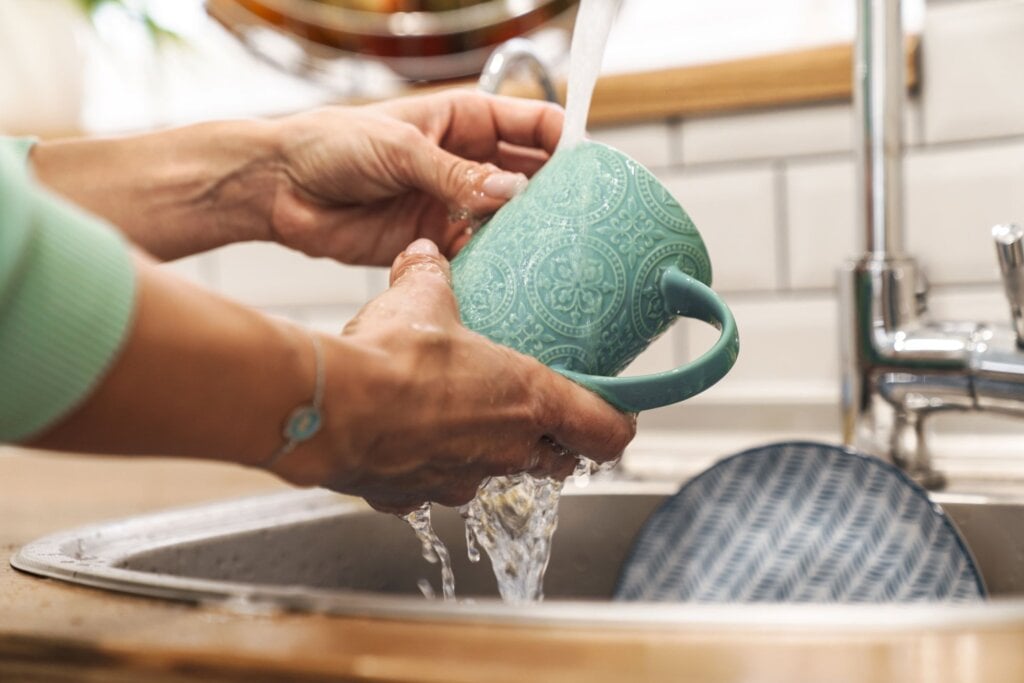Hard water, while it doesn’t pose a health risk, can quietly create major issues for your plumbing system and everyday appliances. Over time, these issues can lead to expensive repairs or replacements. Let’s look a little closer at what hard water is, how it might be affecting your home, and what you can do about it.
What Is Hard Water, Anyway?
Hard water is referring to water that contains high levels of dissolved minerals (specifically calcium and magnesium). While these minerals are naturally occurring and not harmful to drink, they don’t typically play nice with your plumbing or appliances. When hard water flows through your pipes, it leaves behind mineral deposits known as scale or limescale.
As this mineral buildup accumulates, it can narrow water flow and create pressure within the system. This can lead to clogs and reduced water pressure, corrosion or pipe damage, and higher risk of leaks or burst pipes. Hard water can reduce the efficiency and lifespan of your plumbing if left untreated.

Appliance Efficiency Takes a Hit
Hard water doesn’t just stay in your pipes. It can also impact the appliances that rely on water, including:
- Water heaters: Limescale buildup can force these units to work harder, increasing energy costs and shortening their lifespan.
- Dishwashers and washing machines: Hard water tends to leave spots on dishes, reduce the effectiveness of detergent, and create residue that damages interior components.
- Coffee makers, ice makers, and humidifiers: Smaller appliances can clog quickly and may need more frequent cleaning or replacement.
Does Your Home Have Hard Water?
Hardness levels in tap water vary widely across the U.S., depending on local geology, water sources, and climate. Regions built on limestone or chalk aquifers—such as much of the Midwest, Southwest, and parts of Texas—often experience “very hard” to “extremely hard” water.
In contrast, areas fed by soft rainwater and volcanic or igneous rock—like parts of the Pacific Northwest, the South, and New England—tend to have “slightly hard” to “moderately hard” water. The only way to know for sure is to watch for signs and test your local water. According to HomeWater101, 85% of U.S. homes likely have hard water to some degree.
Signs You Might Have Hard Water:
- White, chalky residue on faucets and showerheads
- Spots or film on clean dishes
- Dry skin or dull hair after bathing
- Frequent appliance repairs or replacements
How to Protect Your Home
There are ways to protect your home from the effects of hard water. These include installing water softeners, using scale inhibitors or filters, and regular maintenance.
Water softeners remove excess minerals from your water before it reaches your pipes and appliances, and filters can be an extra layer of protection for your small appliances. It’s also a good idea to have a professional come to check and service your plumbing regularly.
By understanding the effects of hard water and investing in preventative measures, you can extend the life of your plumbing, improve appliance efficiency, and save money over time.
This article is for informational purposes only and does not contain professional home maintenance advice.